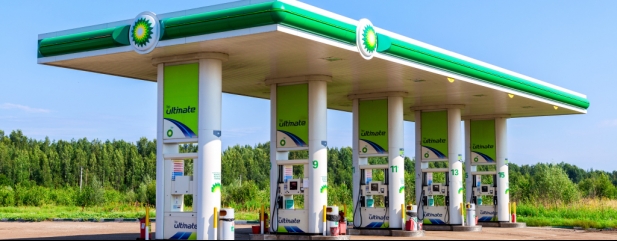Archived article
Please note that tax, investment, pension and ISA rules can change and the information and any views contained in this article may now be inaccurate.
BP’s best underlying profit in a decade will only add to windfall tax calls

Even $20.4 billion worth of write-offs linked to BP’s (BP) exit from Russia couldn’t obscure the strong first quarter enjoyed by the company.
The non-cash impairments principally linked to BP’s investment in Russian oil producer Rosneft may have been hefty but the UK oil company’s underlying net profit of $6.25 billion, up from $4.1 billion in the previous quarter, was its highest quarterly level in a decade. It was also considerably ahead of the $4.5 billion analyst consensus forecast.
The questions facing investors now are two-fold. How high are the risks of a windfall tax on BP’s bumper profit and cash flow and what do recent events mean for the company’s long-term transformation plan?
The answer to the first question is tricky as politicians can be unpredictable. What’s certain is the increase in household energy bills is unlikely to let up in the short term.
As such the argument that BP should share the pain with hard-pressed families, given the big increase in its profitability and cash generation is linked to a surge in commodity prices resulting from the war in Ukraine, is likely to remain a powerful one.
The Labour Party is arguing for a 10% bump in corporation tax for North Sea producers. Chancellor Rishi Sunak has moved from arguing this would hurt investment by the oil and gas sector to accepting it as a possible policy tool if investment isn’t forthcoming.
In this context it is no surprise to see BP chief executive Bernard Looney switch from his talk of the company being a ‘cash machine’ in 2021 to reveal it already expects to pay £1 billion in tax for 2022 North Sea profit and pledging to spend big to boost UK energy security.
Looney said his charge is ‘Backing Britain’ after outlining plans to invest £18 billion in the UK this decade on offshore wind, hydrogen, carbon capture and storage as well as electric vehicle charging infrastructure, retail outlets and North Sea oil and gas.
Where this sits with the company’s 2050 net zero pledge is open to question. It also may not escape the attention of the company’s critics that a further $2.5 billion was allocated to share buybacks.
The company’s ability to indulge in such generosity is underpinned by a drastic improvement in its balance sheet with net debt falling from more than $50 billion two years ago to just $27.5 billion.
Writing down the value of the Russian interests to almost zero is a prudent step but there are some suggestions BP might realise rather more than that as it looks to offload these assets. The Indian government has reportedly asked its state-run energy firms to consider buying Russian oil assets, of which BP’s 19.75% stake in Rosneft could be one.
Important information:
These articles are provided by Shares magazine which is published by AJ Bell Media, a part of AJ Bell. Shares is not written by AJ Bell.
Shares is provided for your general information and use and is not a personal recommendation to invest. It is not intended to be relied upon by you in making or not making any investment decisions. The investments referred to in these articles will not be suitable for all investors. If in doubt please seek appropriate independent financial advice.
Investors acting on the information in these articles do so at their own risk and AJ Bell Media and its staff do not accept liability for losses suffered by investors as a result of their investment decisions.
Issue contents
Feature
Great Ideas
- Find out why WH Smith remains an exciting Covid recovery play
- A tight power market continues to drive earnings upgrades at Drax
- Why we’re sticking with formidable long-run performer Fidelity Special Values
- 2022 should prove a pivotal year for GlaxoSmithKline
- Shares in comparison website owner Moneysupermarket are too cheap to ignore
- This is how to find a winning combination of cheap stocks and inflation protection

 magazine
magazine








